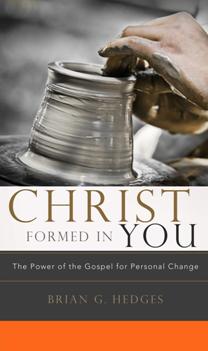Hope in Suffering
The pathways of our lives are far more often paved with adversity than strewn with flowers. The older I get, the clearer this becomes. Though I have so far been spared much physical suffering, I have felt the dull ache of disappointment, the sharp sting of criticism and betrayal, and the relentless weight of burdensome circumstances. As a pastor, I have often had a front-row seat to suffering. Couples looking for a shred of hope in a failing marriage; parents anxious about the choices of wayward children; saints grieving the loss of loved ones through death. I’ve now been in the ministry long enough to have buried quite a few people, sometimes after watching their bodies waste away over weeks or months.
The pathways of our lives are far more often paved with adversity than strewn with flowers. The older I get, the clearer this becomes. Though I have so far been spared much physical suffering, I have felt the dull ache of disappointment, the sharp sting of criticism and betrayal, and the relentless weight of burdensome circumstances. As a pastor, I have often had a front-row seat to suffering. Couples looking for a shred of hope in a failing marriage; parents anxious about the choices of wayward children; saints grieving the loss of loved ones through death. I’ve now been in the ministry long enough to have buried quite a few people, sometimes after watching their bodies waste away over weeks or months.
From near and far, we have all seen people endure trials
of every sort:
• Financial (poverty, debt, bankruptcy)
• Vocational (unemployment, unremitting stress, business-related lawsuits)
• Relational (strained friendships, communication struggles, recurring conflict, wayward children, infidelity, divorce)
• Emotional (guilt, fear, disillusionment, discouragement, depression)
• Physical (chronic pain, terminal disease, suicide, death)
• Financial (poverty, debt, bankruptcy)
• Vocational (unemployment, unremitting stress, business-related lawsuits)
• Relational (strained friendships, communication struggles, recurring conflict, wayward children, infidelity, divorce)
• Emotional (guilt, fear, disillusionment, discouragement, depression)
• Physical (chronic pain, terminal disease, suicide, death)
In most lives, of course, suffering is not so neatly compartmentalized. Financial pressures may be due to unemployment and can easily bleed over into emotional distress, marital conflict, and health problems. Emotional suffering is almost always tied to other situations in life, as either cause or effect. Marriage difficulties take a huge emotional toll and always affect other relationships. Persecution can happen in any or all of these ways.
But none of us are mere observers. We are all
participants in pain. Even as I write this, there are three situations in my
life I would change in a minute if given the option. Life is hard. For
everyone.
All this adversity, affliction, pain, and death stems
from one basic cause: the world is fallen. Since the moment of man’s initial
rebellion against God we have lived under a curse (Gen. 2:17; 3:16-19). Though
unwillingly subjected to futility, even the material creation groans as it
awaits eventual rebirth (Rom. 8:20-22). But for the present, as Bob Dylan’s
ballad captures well, “Everything is broken.”[i]
Yet there is good news in the middle of this mess. God’s
answer to the brokenness of our world was not to abandon and give up on it, but
to redeem it. By sending his Son to bear the dreadful curse of our sin (Gal.
3:13), and then raising him from the dead, God has inaugurated the new creation
(1 Cor. 15:20-28).
Our God is a Suffering God
Any discussion of human suffering rightly begins with a
two-part recognition. First, suffering is an alien invasion into God’s good
creation that results from human rebellion and sin. Second, suffering is
addressed by our saving God in the cross and empty tomb of Jesus. This second reality
asserts something remarkable: when God allowed sin to enter this world, even he
was affected. It is not only humanity that has suffered as a result of sin. God
himself chose to suffer both with us and for us, in order to rescue and redeem
the good world he created. As D. A.
Carson thoughtfully writes:
When Christians think seriously about
evil and suffering, one of the paramount reasons we are so sure that God is to
be trusted is because he sent his Son to suffer cruelly on our behalf. Jesus
Christ, the Son who is to be worshiped as God, God’s own agent in creation
(John 1:2-3), suffered an excruciatingly odious and ignominious death. The God
on whom we rely knows what suffering is all about, not merely in the way that
God knows everything, but by experience.[ii]
The ultimate answer to human suffering, then, is in the
suffering of God himself through the cross. The letter of Hebrews says that
Jesus was “crowned with glory and honor because of the suffering of death, so
that by the grace of God he might taste death for everyone” (Heb. 2:9). God,
the eternal one, the source of all life, suffered the taste of death; his plan
for bringing many sons to glory was only accomplished by making “the founder of
[our] salvation perfect through suffering” (Heb. 2:10; cf. 5:10). This means
Jesus is a high priest who sympathizes with our weaknesses, since “in every
respect [he] has been tempted as we are, yet without sin” (Heb. 4:15; cf. 2:18).
Jesus knows our pain.
Our God, revealed in Jesus Christ, is unique among the
religions of the world. He alone has entered into the reality of our suffering.
